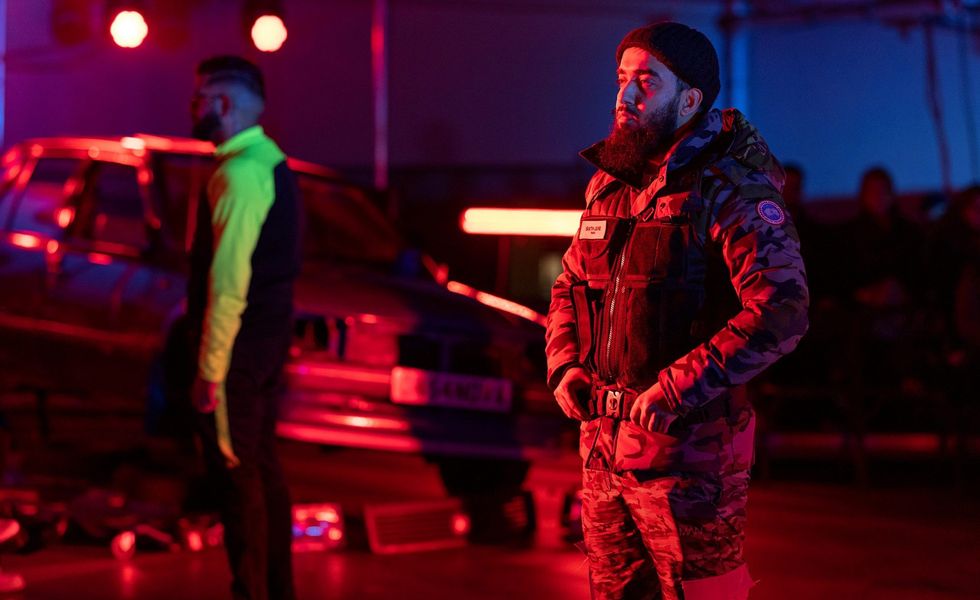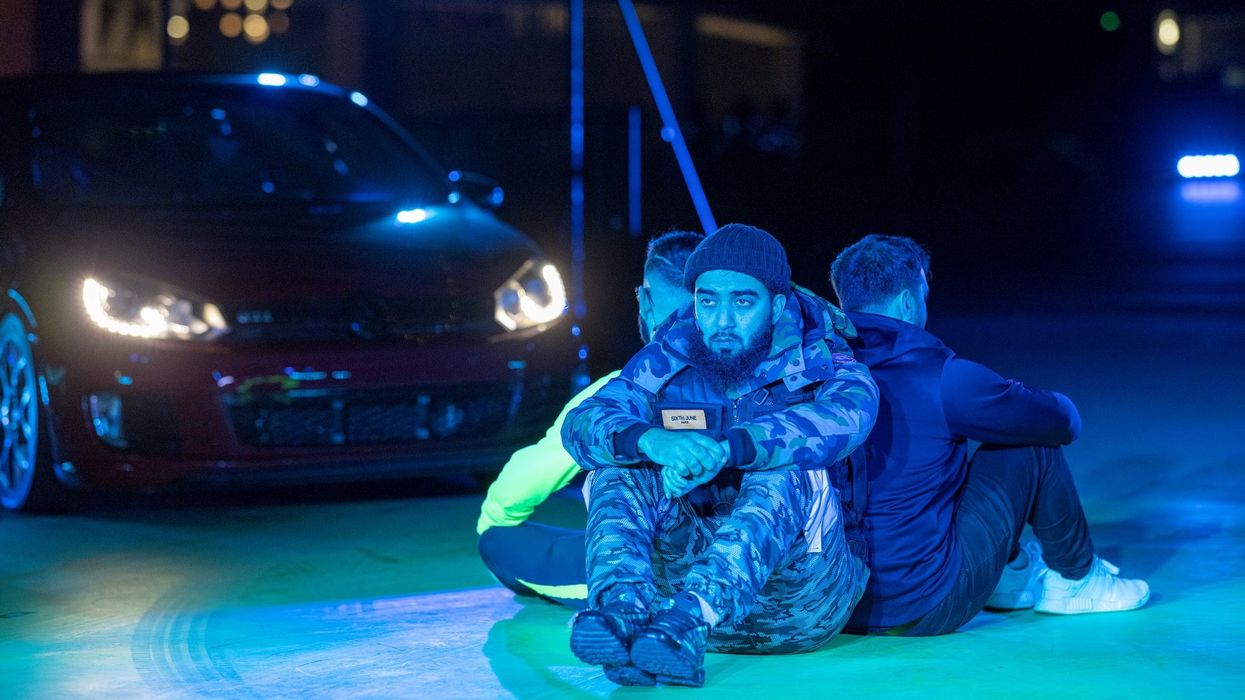ACCLAIMED play Peaceophobia makes a return after a sell-out premiere in 2021, with immersive shows at Norfolk & Norwich Festival from May 18–21, and at Brighton Festival, May 25-29.
The unique experience staged in a carpark brings together motor vehicles, theatre, cinematic lighting, and an original electronic sound score. The show co-written by acclaimed playwright Zia Ahmed revolves around three Muslim Pakistani men growing up in the shadow of the Bradford Riots, 9/11 and police harassment, who use cars and faith as a sanctuary.
It is co-directed by young women from Speakers Corner, and Eastern Eye caught up with the creative collective’s Mariyah Kayat to discuss Peaceophobia. The co-creator and co-director also spoke about the key messages of the distinctive play.
Tell us about the Speakers Corners collective you are part of?
Speakers Corner is a female-led, social, creative, and political youth collective based in Bradford. We create campaigns that focus on issues important and relevant to young people. This can be anything from mental health and body image to international activism.
What led towards the creation of the play Peaceophobia?
Peaceophobia was born out of multiple conversations and a response to ‘Punish A Muslim day’. There were a lot of conversations around how the men in our families have public facing jobs and there was a lot of fear towards that. This was also combined with how Muslim men are portrayed in media, especially young men from Bradford. There was also a recognition of the car culture in Bradford and how this is spoken about and shown in media. We wanted to show the modified car scene as a way of art, and a talent.

Tell us about the play?
The play explores cars, car culture and Islam. Throughout the show the actors share stories of their experiences with Islamophobia on a personal and institutional level. The show also explores how Islam is woven into and is part of their lives. The show is created to invoke conversations and allow people to see and learn about a narrative that is from the young men directly.
What was it like being part of such a large collective directing the play?
Being part of a large collective, co-directing was an amazing process. It allowed each actor to have a personal director. It also allowed there to be various creative ideas and for us to all have a certain focus and learn about different aspects of creating a show.
As a female collective, why did you decide to direct a male-dominated play?
Throughout the years, Speakers Corner have created campaigns and built a strong platform. We wanted to use this to create bigger work that impacts different people. The idea itself for Peaceophobia came from Speakers Corner and was first a campaign. When it became a play, it felt right that we were still involved in the creation of the show.
What was the biggest challenge of creating something in a unique setting?
The biggest challenge was adjusting the set to work for us. It was more technical difficulties that challenged us.
What is the key message of the play?
The key message is to show the journey and experiences of these three young Muslim men from Bradford. It is to create conversations around issues that are usually portrayed negatively in the media and to offer another perspective.
Who are you hoping it connects with?
We are hoping to connect with other young Muslims who may see themselves or someone they know within the show. But also, people who aren’t south Asian or Muslim, as it’s important to have these conversations and to share experiences with other people.
Why should we come and watch your play Peaceophobia?
Peaceophobia is a show that is unlike any other. It explores issues around Islam and Islamophobia in a real way that isn’t abrupt. It allows you to see the joy and beauty in brotherhood within the actors and their love for cars through art. It shares emotional, funny, and actual stories of the actors.
Peaceophobia is being staged at Rose Lane Car Park in Norwich, as part of the Norfolk & Norwich Festival, from May 18-21. Visit www.nnfestival.org.uk and at Brighton Marina Car Park in Brighton, as part of the Brighton Festival from May 25-29.
Visit www.brightonfestival.org




